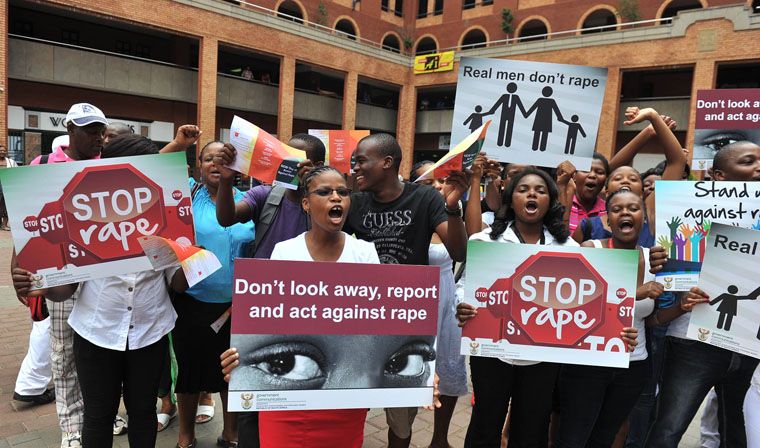As a college student deeply involved in the feminist community, I’m used to hearing the term “rape culture.”

Rape culture is a concept in which rape is pervasive and normalized by societal attitudes about gender and sexuality. Rape culture, especially on college campuses, has been made increasingly visible. Just this past year, Rolling Stones’ controversial article went viral, The Hunting Ground was released, and college students filed a series of Title IX violations across the country. The topic of campus rape is on the forefront of everyone’s minds.
When I walked into a workshop on rape culture, run by the DC Coalition Against Domestic Violence (DCCADV), I was expecting to hear a similar lament to that of my campus conversations. However, the session was different. Together, advocates from multiple organizations identified the roots of rape culture and how to uproot them. Though we frequently talk about combating this pervasive cultural attitude in a college setting, we often ignore its origins.
The meaning of the word “rape” continuously evolves. The term was first used in Old English law and meant “to take,” applying to any crime where something was stolen. Since then, the definition has radically changed, referring instead to physical and sexual violation. So how has something that has been viewed historically as a negative seeped into our current culture?
According to Malik Washington of DCCADV, the way we teach boys and girls reinforces rape culture. Washington projected two pictures on the board: one of words used to advertise to girls, the other of words used to advertise to boys. The most commonly used word for girls was “love.” For boys? “Battle,” with “power” coming in second place. These words place a value in dominance and are inherently linked to violence.
This violence can be seen in sexualized language used by teenage men. “Slayed,” “banged,” “nailed,” “pounded;” all of these phrases are used to describe sex. These terms remove sex from being an act made by two consenting people and, instead, put the man in a dominant, aggressive role. Sexualized language is not only used to describe sexual encounters, it’s used in every day conversation.
How many times have you heard “I hit on her” when a friend talks about last night’s bar scene, or, “I raped the game” as a teammate describes their latest victory on the field? These phrases are accepted, but every time we use them we are further perpetrating the normalcy of sexual violence. Every time we use these phrases we are ignoring the very real violence that affects one out of six women in the US. Using language as a vehicle to trivialize violence devalues the experiences of survivors.
Changing the language you use is just one way to stand in solidarity with survivors. And it’s one worth speaking up about.
Fight rape culture on your campus with the Feminist Campus Campaign to End Sexual Violence.

